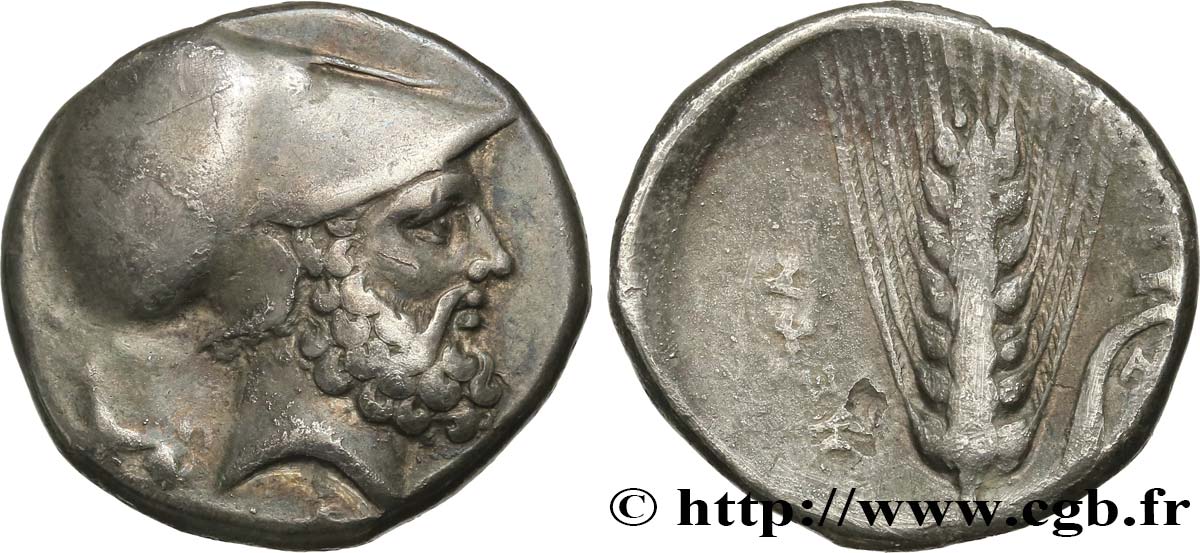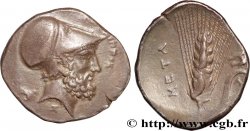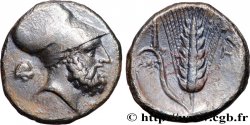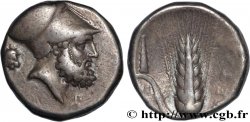bgr_571221 - LUCANIA - METAPONTUM Nomos ou Didrachme
Not available.
Item sold on our e-shop (2020)
Price : 520.00 €
Item sold on our e-shop (2020)
Price : 520.00 €
Type : Nomos ou Didrachme
Date: c. 330 AC.
Mint name / Town : Métaponte
Metal : silver
Diameter : 22 mm
Orientation dies : 12 h.
Weight : 7,59 g.
Rarity : R2
Coments on the condition:
Exemplaire sur un flan ovale bien centré. Belle tête de Leucippe à l’usure régulière. Frappe molle et faible au revers avec une usure plus marquée. Patine de collection ancienne avec des reflets dorés
Catalogue references :
Obverse
Obverse description : Tête barbue et casquée de Leucippe à droite, coiffée du casque corinthien ; derrière, chien assis tourné à gauche.
Obverse legend : L[EUKIG/GOS].
Reverse
Reverse description : Épi de blé sur sa tige à droite ; au-dessus, oiseau, debout sur la feuille, les ailes ouvertes.
Reverse legend : META/ [AMI].








 Report a mistake
Report a mistake Print the page
Print the page Share my selection
Share my selection Ask a question
Ask a question Consign / sell
Consign / sell
 Full data
Full data



